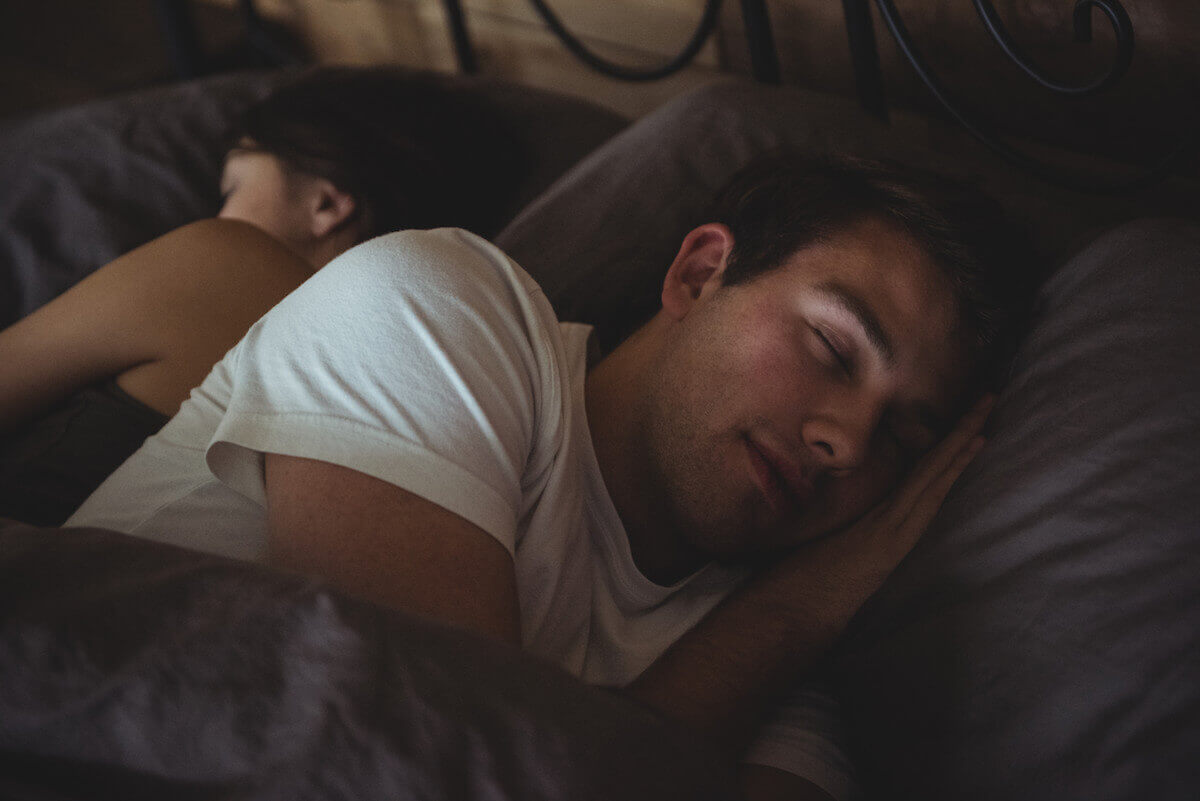
If you’re having a hard time sleeping, sleep is probably all you can think about. You may wonder how you can get more sleep, stop from waking up in the middle of the night, fall asleep faster and improve your sleep quality in general. Sleep is vitally important for our bodies; it’s one of the only times our bodies heal. If we don’t sleep, or sleep poorly, we can inhibit or slow down our bodies ability to heal.
Find out how different hormones affect our quality of sleep and how you can improve your sleep by adopting a good sleep hygiene and stress-reducing activities like meditation.
Melatonin is a key hormone that our pineal gland produces to allow us to go to sleep. It helps regulate the body’s circadian rhythm and promotes sleep by improving the sleep wake cycle. Studies have shown that it can help decrease the time it takes to go to sleep, as well increase overall sleep durations.
A problem arises though if you’re experiencing a lot of stress. Cortisol is known as the stress hormone and has an inverse relationship with melatonin. When melatonin is high, cortisol is low and vice versa. Cortisol levels are supposed to be highest during the day (with a secondary peak in the mid-afternoon). Conversely, melatonin levels are supposed to be highest at night while we are sleeping. If you are stressed, you can experience irregularly high cortisol levels at night, which interferes with the concentration of melatonin your body can make. As a result, some people feel like their minds are racing and cannot properly sleep (Psychology Today).
An important practice to help improve your sleep and have a good night’s rest is good sleep hygiene. It’s pretty much your nighttime ritual before you sleep to wind down and promote good sleep. Some beneficial routines include:
Electronics emit a blue light, which throws of our circadian rhythm causing several people to have a difficult time falling asleep. The blue or white light from electronic devices are strong enough to make our bodies think it is day time and as a result, suppresses the production of melatonin by the body, making it harder for you go to sleep. Exposure to any light while sleeping could do this, especially if it’s blue light which can come from even LED light bulbs. That’s why it’s best to sleep in a space that’s completely dark. If this is difficult to do, try using a sleeping mask to mimic a dark room.
Meditation can be difficult to do, especially if it’s your first time doing it. It allows your mind and body to go into a deeper state of relaxation, where it can rest. Finding time for 20 minutes of meditation can help improve your energy for the rest of the day and meditating before you sleep can improve your quality of sleep. Some say that a good 20-minute meditation is equivalent to 4-6 hours of sleep.
There’s a thought out there that says meditation is about not thinking, but rather the “art of doing nothing” based on Sri Sri’s wisdom talks (The Art of Living). By allowing yourself to do nothing, you position yourself in such a way that your mind and senses can take a break. This doesn’t mean to actively think, “do nothing or think nothing,” but rather if a thought comes to mind, you see it and let it go. Like when you’re looking out a window in the passenger seat. You let the images go past you.
The mind doesn’t work like the body. If you actively work your body, it does amazing things. If you actively work your mind, it doesn’t work so well. Actively attempting to go to sleep doesn’t work that well and you end up feeling more awake. Practice meditating and using no effort in sleeping so you can sleep easier.
If you want to learn more, check out our Foundations of Health blog series including basics on Sleep and Stress Management.
Adapted from a blog post by Dr. Charmagne Sia Lu, B.Sc. ND, Naturopathic Doctor